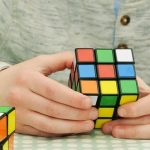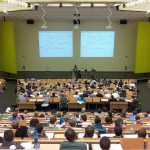“21st Century Skills”, “key competencies”, “new literacy”, “soft skills”… Nowadays a lot of respected organizations issue lists of basic skills. Which of them are worth fostering? How to do it? These questions definitely need to be answered, in order to specify what a school should teach its students to help them become successful in today’s world after graduation?
Two years ago an international consortium of scientists managed by Institute of Education of the Higher School of Economics and in collaboration with Moscow City University started a research project to answer the above-mentioned questions. This study resulted in a fundamental report “Universal competencies and new literacy: from declarations to reality” in which experts examine “loads” of existing concepts and notions and determine potential obstacles for transforming educational context. Data retrieved as a result of large-scale international research alongside with the practical experience of fostering 21st Century Skills in China, Finland, Poland, Canada, the Great Britain, Korea and the USA formed a strong basis for the research.
The report will be published by the end of the year, however right now one of the key chapters is available, in which authors distinguish 3 universal competencies: intellectual ability to solve problems – “thinking competency”; ability to work in a team – “people interaction competence” and skills of self-organization and self-control – “self-interaction competence”.
Literacy, in turn, is divided into 2 categories: 1) ability to use semiotic systems (texts, numbers – in general meaning) to perceive and transfer information 2) knowledge and skills, that are required in a specific sphere (e.g. financial) and allowing to effectively operate in today’s socium.
It is supposed, that presented system will help schools in designing curricula and assessment tasks in order students’ knowledge in different subjects form general comprehension, allowing them to effectively perform in real life situations.
Source: Institute of education of HSE






